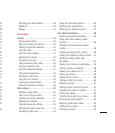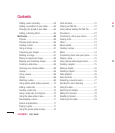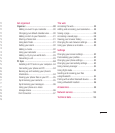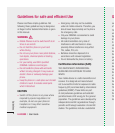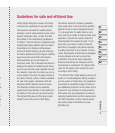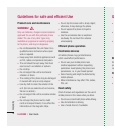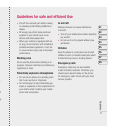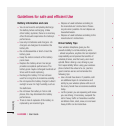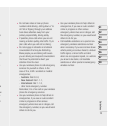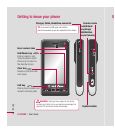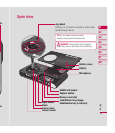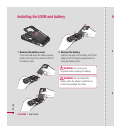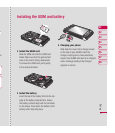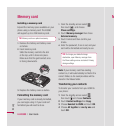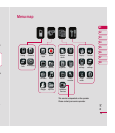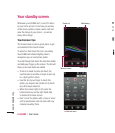
13
01
02
03
04
05
06
07
08
Guidelines
s
e
nt
s
le
ow
e
r
n
• Do not take notes or look up phone
numbers while driving. Jotting down a “to
do” list or fl ipping through your address
book takes attention away from your
primary responsibility, driving safely.
• If possible, place calls when you are not
moving or before pulling into traffi c. Try to
plan calls when you will not be driving.
• Do not engage in stressful or emotional
conversations that may be distracting.
Make people you are talking with aware
you are driving and suspend conversations
that have the potential to divert your
attention from the road.
• Use your wireless phone to call emergency
services for yourself or others. in the
case of fi re, traffi c accident or medical
emergencies;
- Australia: Dial 0-0-0,
- New Zealand: Dial 1-1-1,
- International: Dial 1-1-2,
- other local emergency number.
Remember, it is a free call on your wireless
phone for emergency services.
• Use your wireless phone to help others in
emergencies, if you see an auto accident
crime in progress or other serious
emergency where lives are in danger, call
the emergency number, as you would want
others to do for you.
• Use your wireless phone to help others in
emergencies, if you see an auto accident
crime in progress or other serious
emergency where lives are in danger, call
the emergency number, as you would want
others to do for you.
• Call roadside assistance or a special non-
emergency wireless assistance number
when necessary. If you see a broken down
vehicle posing no serious hazard, a broken
traffi c signal, a minor traffi c accident
where no one appears injured, or a vehicle
you know to be stolen, call roadside
assistance or other special nonemergency
wireless number.



